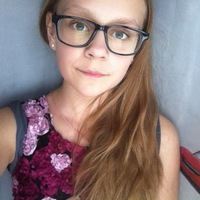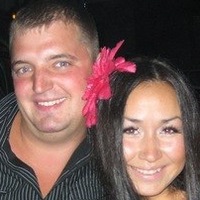
Помогите пожалуйста!!!
It was getting dark when Laura got to her sister’s place. The entrance door ______LOCK______.
Laura pressed the doorbell and ______HEAR______ quick footsteps. “It’s so nice of you to come,’ Laura’s sister Betty opened the door.
“Come in. We ______PUT______ a meat pie into the oven. I think it’ll be ready in forty minutes or so. You aren’t very hungry, are you?”
Betty was seven years ______YOUNG______ than Laura, but she was much better at housekeeping.
When Laura entered the house, she saw four ______WOMAN______ in the sitting room.
They nodded and went on talking. “Where’s Ken?” asked Laura. “He ______REPAIR______ his car in the garage,” Laura said.
“He ______JOIN______ us soon.”
Mr. and Mrs. Wormwood were our neighbours. They had two ________CHILD__________. Their son Michael __________NOT/DIFFER________ from the other children very much, but their daughter Matilda was a brilliant child.
By the time she was five, Matilda was able to read very well. She studied every magazine and newspaper that she _________CAN_________ find around the house. Actually, she read _________WELL_________ than most school pupils. One afternoon when the parents were out of the house, Matilda put on _________SHE_________ dress and shoes and went to the library. The librarian was surprised to see such a small child.
"Are you here for the _________ONE_________ time? Would you like me to find a nice book with lots of pictures for you?" she asked.
"No, thank you, I _________FIND_________ what I need," answered Matilda and pointed to a thick book of fairy tales. Then she added, “I ________COME__________ for a new book as soon as I finish this one”.
The librarian was really shocked when she saw Matilda only two days later.
“I wish all children _________LIKE_________ reading so much,” the librarian said. From that day on Matilda went to the library every afternoon.
Mr. and Mrs. Wormwood were our neighbours. They had two ________CHILD__________. Their son Michael __________NOT/DIFFER________ from the other children very much, but their daughter Matilda was a brilliant child.
By the time she was five, Matilda was able to read very well. She studied every magazine and newspaper that she _________CAN_________ find around the house. Actually, she read _________WELL_________ than most school pupils. One afternoon when the parents were out of the house, Matilda put on _________SHE_________ dress and shoes and went to the library. The librarian was surprised to see such a small child.
"Are you here for the _________ONE_________ time? Would you like me to find a nice book with lots of pictures for you?" she asked.
"No, thank you, I _________FIND_________ what I need," answered Matilda and pointed to a thick book of fairy tales. Then she added, “I ________COME__________ for a new book as soon as I finish this one”.
The librarian was really shocked when she saw Matilda only two days later.
“I wish all children _________LIKE_________ reading so much,” the librarian said. From that day on Matilda went to the library every afternoon.
Dr Michael Werner says that he has eaten nothing for four years. The German _________SCIENCE_________ explains that he gets all his energy from sunlight. He says he drinks only water and ________DIFFER__________ fruit juices. Dr Werner has written an _________EXCITE_________ book about his experiences. In it he says that when he started the experiment he even put on weight.
He says: "I can't really give an ________EXPLAIN_________ of what’s happening to me; perhaps I just believe in my theory."
Dr Werner’s colleagues say that only plants can produce energy from the sun, and they cannot explain how he is able to stay ________HEALTH_________.
“This case ,_________PROBABLE_________, needs a lot more research before we will be able to explain it,” they say.
What is the largest animal on the planet? My uncle says that it’s the blue whale. He is a ______SCIENCE______ and knows a lot about them. The blue whale is an endangered animal, nowadays, people protect whales. ______FORTUNATE______, They study these ______BEAUTY______ animals instead of killing them. Blue whales are not______DANGER______ to people. It’s ______BELIEVABLE______ but these huge whales eat plankton – small plants and animals.
Ответы на вопрос

Вопрос, который вы задали, касается грамматических форм в английском языке, а именно — правильного использования времен и форм слов в предложениях. Вот подробный разбор с ответами:
It was getting dark when Laura got to her sister’s place. The entrance door LOCK.
- Ответ: was locked. Здесь используется пассивный залог в прошедшем времени, так как действие произошло до того, как Лора пришла. Перевод: «Дверь была закрыта».
Laura pressed the doorbell and HEAR quick footsteps.
- Ответ: heard. Нужно использовать прошедшую форму глагола hear (heard), так как действие произошло в прошлом. Перевод: «Лора нажала на дверной звонок и услышала быстрые шаги».
“It’s so nice of you to come,’ Laura’s sister Betty opened the door. “Come in. We PUT a meat pie into the oven. I think it’ll be ready in forty minutes or so.
- Ответ: have put. Здесь нужно использовать Present Perfect, так как действие происходит в момент речи, и результат (мясной пирог в духовке) важен в текущий момент. Перевод: «Мы положили мясной пирог в духовку».
You aren’t very hungry, are you?” Betty was seven years YOUNG than Laura, but she was much better at housekeeping.
- Ответ: younger. Правильная форма сравнительной степени прилагательного «young» — younger. Перевод: «Бетти была на семь лет младше Лоры».
When Laura entered the house, she saw four WOMAN in the sitting room.
- Ответ: women. Во множественном числе существительное «woman» меняется на women. Перевод: «Она увидела четырёх женщин».
They nodded and went on talking. “Where’s Ken?” asked Laura. “He REPAIR his car in the garage,” Laura said.
- Ответ: is repairing. Это Present Continuous — действие происходит прямо сейчас. Перевод: «Он ремонтирует свою машину в гараже».
“He JOIN us soon.”
- Ответ: will join. Здесь используется Future Simple, так как это предсказание о будущем. Перевод: «Он скоро присоединится к нам».
Mr. and Mrs. Wormwood were our neighbours. They had two CHILD__.
- Ответ: children. Во множественном числе слово «child» становится children. Перевод: «У них было двое детей».
Their son Michael __NOT/DIFFER from the other children very much, but their daughter Matilda was a brilliant child.
- Ответ: did not differ или didn't differ. В отрицательных предложениях в прошлом используется did not (или сокращённо didn't) + основная форма глагола (differ). Перевод: «Их сын Майкл не отличался от других детей сильно».
By the time she was five, Matilda was able to read very well. She studied every magazine and newspaper that she CAN find around the house.
- Ответ: could. Здесь используется прошедшая форма could вместо can, так как действие описано в прошлом. Перевод: «Она изучала каждый журнал и газету, которые она могла найти в доме».
Actually, she read WELL than most school pupils.
- Ответ: better. Это сравнительная степень прилагательного well — better. Перевод: «На самом деле, она читала лучше, чем большинство школьников».
One afternoon when the parents were out of the house, Matilda put on SHE dress and shoes and went to the library.
- Ответ: her. Здесь нужно притяжательное местоимение her (её), так как речь идет о платье и обуви Матильды. Перевод: «Однажды после обеда, когда родители были вне дома, Матильда надела своё платье и обувь и пошла в библиотеку».
The librarian was surprised to see such a small child. "Are you here for the ONE time? Would you like me to find a nice book with lots of pictures for you?" she asked.
- Ответ: first. Здесь используется слово first (первый) в качестве прилагательного. Перевод: «Вы здесь в первый раз? Хотите, чтобы я нашла для вас хорошую книгу с множеством картинок?»
"No, thank you, I FIND what I need," answered Matilda and pointed to a thick book of fairy tales.
- Ответ: have found. Здесь необходимо использовать Present Perfect — «I have found» (я нашла). Перевод: «Нет, спасибо, я уже нашла то, что мне нужно».
Then she added, “I COME__ for a new book as soon as I finish this one”.
- Ответ: will come. Это будущее время, которое показывает, что Матильда придет за новой книгой после того, как закончится с текущей. Перевод: «Я приду за новой книгой, как только закончу эту».
The librarian was really shocked when she saw Matilda only two days later. “I wish all children LIKE reading so much,” the librarian said.
- Ответ: liked. Здесь используется Past Simple, так как это гипотетическое желание о прошлом. Перевод: «Я хочу, чтобы все дети так любили читать».
Надеюсь, это поможет вам лучше понять, как работают различные грамматические конструкции в английском языке!
Похожие вопросы









Топ вопросов за вчера в категории Английский язык








Последние заданные вопросы в категории Английский язык





-
Математика
-
Литература
-
Алгебра
-
Русский язык
-
Геометрия
-
Английский язык
-
Химия
-
Физика
-
Биология
-
Другие предметы
-
История
-
Обществознание
-
Окружающий мир
-
География
-
Українська мова
-
Информатика
-
Українська література
-
Қазақ тiлi
-
Экономика
-
Музыка
-
Право
-
Беларуская мова
-
Французский язык
-
Немецкий язык
-
МХК
-
ОБЖ
-
Психология
-
Физкультура и спорт
-
Астрономия
-
Кыргыз тили
-
Оʻzbek tili











